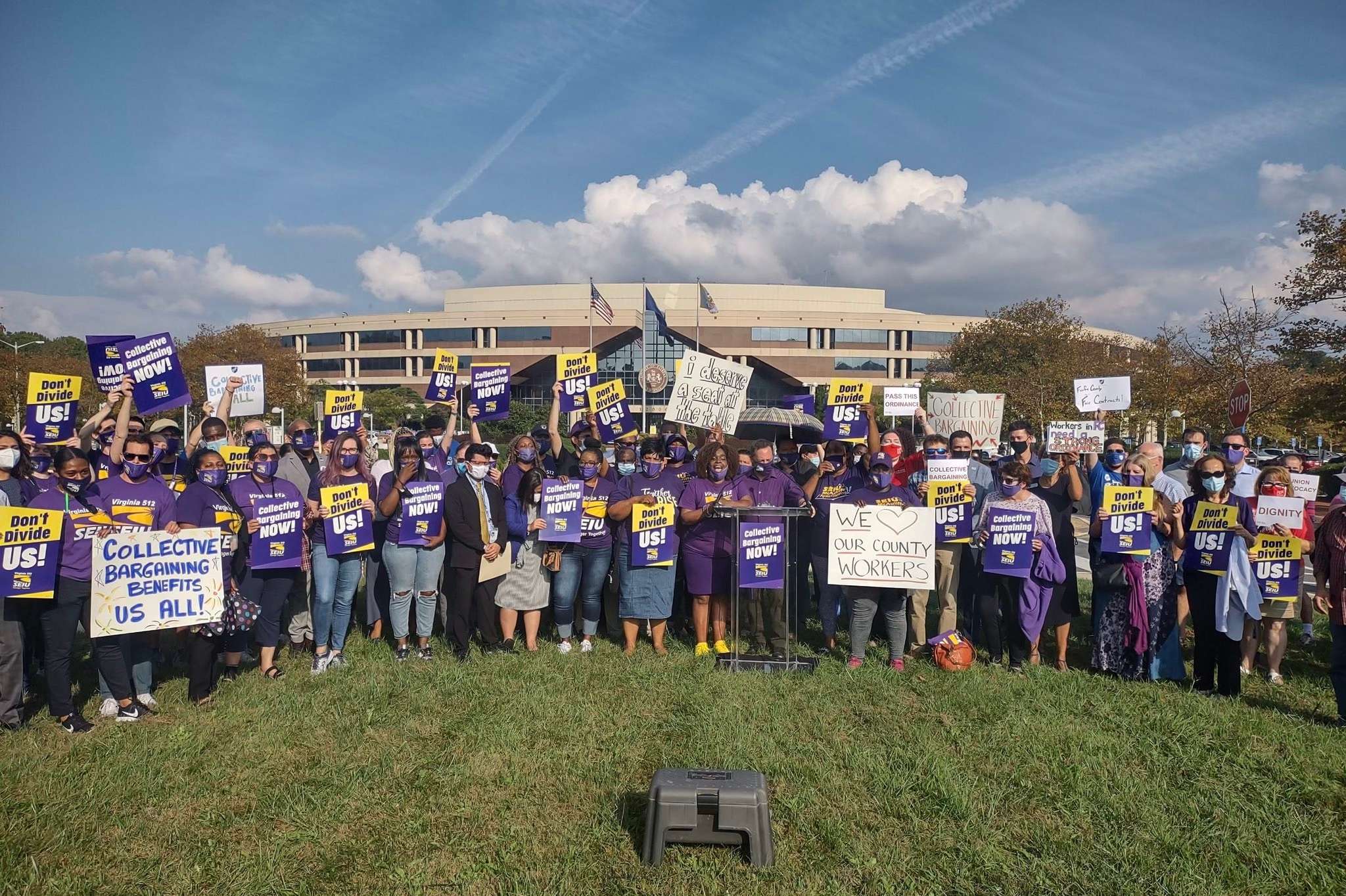“You can’t be ruled by fear!”
A worker speaks about why PWC needs collective bargaining.
As the discussion towards collective bargaining moves ever so close to a decision, there are a variety of viewpoints that are being considered as to what is best. However, it is the voice of those who are impacted the most that is not heard as much: the workers themselves.
Kerensa Green Sumers has been a Prince William County employee for several years, and recently she spoke with the PW Perspective about why collective bargaining is necessary. Not just for those who labor, but for the future growth of the county.
“We need collective bargaining so we can have a guide what positions are needed and the duties that are actually beneficial to our jobs,” she said. “As of right now, job descriptions change, duties increase, as do caseloads, and we get overwhelmed. Because of this,we have a lot of turnover, which impacts the services we provide to the community.”
“Collective bargaining will draw in more people who want to work in Prince William County and enable us to provide better support to those in need. If you look at the Department of Taxation and others, people are trying to get permits to build houses, and it’s taking months because the staffing issue has impacted everyone.”
Green Sumers, who works for the CSB, talks about how burnout has been a significant problem for employees who have taken on more work over the past two years.
“People feel as if no one cares what they have to say, and you have a lot of people who don’t know what we do dictating what our jobs should be, and the impact is has across the board. Mental health, drug services and others not being sufficiently staffed has a great impact everywhere, from the police department to the hospitals. Every aspect of the county ends up affected because we are the people who have to go in and fix these situations.”
With more public support for collective bargaining rising, according to recent Gallup polls, Green Sumers feels as if this is a positive sign.
“It would be great, showing that Prince William County is progressive, and the county is trying to provide the best service for people who live here, and they are looking towards the future. You will not get high-quality employees if you don’t have collective bargaining. We need to have people who live and work in the same county. When that happens, the citizens will be more engaged because they’ll be more invested.”
So, what does she say to those who oppose collective bargaining? “What we want won’t be achieved until everyone understands its benefits outweigh the costs. Those who don’t take the time to understand or join a union, you’re contributing to the regression. There are elected officials who are disconnected from what we’re dealing with on a day-to-day basis and we need those who are on the ground to speak out.”
Speaking of the investment, she goes on to discuss how those who are speaking out cite recent precedent of neighboring counties as a template. “Fairfax County didn’t get to be where it is today until they started paying people what they were worth, and those people invested in their county. We need to have staff and employees feel like we matter.”
One of the biggest misunderstandings about collective bargaining is that only the workers will benefit. Green Sumers talks about how the supervisors will also gain as part of negotiations. “You have certain managers who make less money that those who they supervise, and it’s not as uncommon as you think. There are supervisors who feel overlooked as well, and collective bargaining allows for non-combative collaboration between management and staff. No one is left out of the process, nor are they discouraged.”
Another reason that she says there needs to be more voices of support at Tuesday’s meeting is to remove another problem workers face. “Workers need to know there won’t be any retaliation. That is the number one thing I’ve heard from staff, employees and different departments. Everyone is concerned about some level of retaliation, and that’s why people are worried about unionizing, and if it will affect if they get a promotion. If we don’t have collective bargaining, there will be retaliation, because there will be nothing to prevent it from happening.”
“You can’t be ruled by fear, and you can’t be governed by what may happen, but we do know what will happen if we don’t say something: there won’t be collective bargaining. That is a guarantee.”
She’s spoken to management where she works and says that they are in agreement. “It takes a lot of pressure off of them for issues outside of their control, and it opens up a dialogue as to how to be more cohesive.”
Whether it’s mobile scanners, tablets, or workable computers, she says that workers simply want the basic essentials to do effectively work, and they know that can come through collective bargaining.
“We just want to do our jobs without having to worry about things that are out of our own control, support our individuals, and be able to have an actual work-life balance in Prince William County.”
(Editor’s Note: Kerensa Green Sumer’s comments were not as a union representative, but as an individual worker only.)



